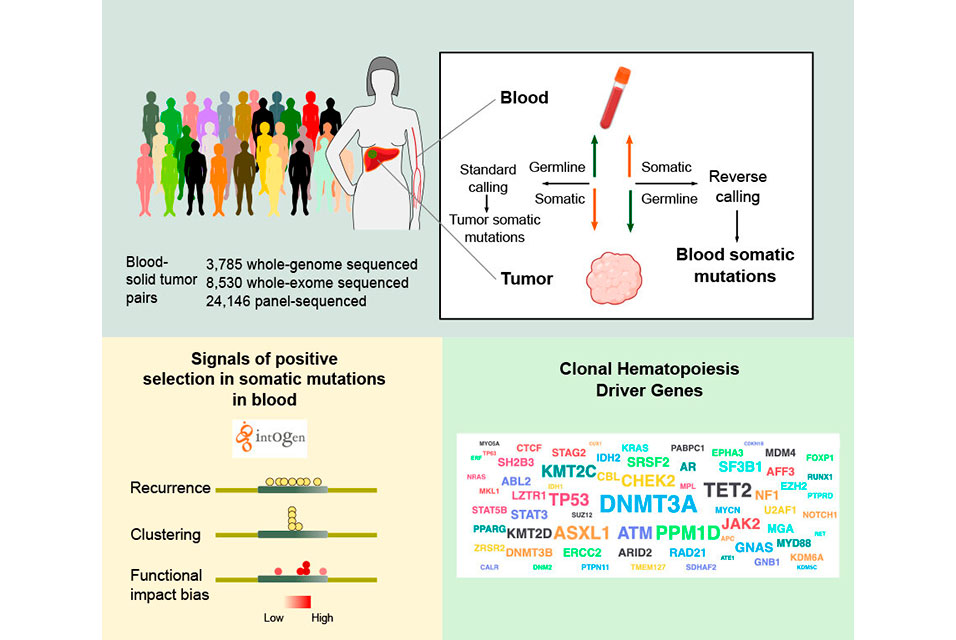BARCELONA.- Clonal hematopoiesis is a biological process in which a blood stem cell (the population that gives rise to a variety of blood cell types) acquires an advantageous mutation and outgrows neighboring cells. Clonal hematopoiesis is diagnosed when this mutation is present in 2% of all blood cells in a given individual. The advantageous mutations that drive clonal hematopoiesis are under positive selection, just like mutations in cancer genes which are responsible for the malignisation of cells.
Led by ICREA research professor Dr. Núria López-Bigas, scientists in the Biomedical Genomics lab at
IRB Barcelona have repurposed computational tools, initially designed within the field of cancer genomics, to pinpoint the genes driving clonal hematopoiesis. The rationale behind this strategy is that the development of both cancer and clonal hematopoiesis is subject to positive selection, and therefore, if properly adapted, tools and datasets used to identify cancer driver genes could also advance research in clonal hematopoiesis.
First, to identify somatic mutations in blood cells, the researchers inverted the methodology used in cancer, where the genome of blood cells of a cancer patient is used as a reference to identify the somatic mutations in the tumor sample. Instead, they carried out a "reverse calling", that is, they used the tumor genomes as references to identify somatic mutations present in blood cell genomes, which had been expanded due to clonal hematopoiesis. Applying the Integrative OncoGenomics (IntOGen) pipeline developed by the group, they then used these blood somatic mutations to identify genes under positive selection in clonal hematopoiesis.
Clonal hematopoiesis was first identified more than 60 years ago, but a full understanding of all genes capable of driving this disorder is still lacking. "In this work, we propose a new approach that could lead to the identification of the compendium of its driver genes, thus improving our understanding of the underlying mechanisms and contributing to the early detection of clonal hematopoiesis in the population," says Dr. Abel González-Pérez, an IRB Barcelona research associate who has co-led the project with Dr. López-Bigas.
Clonal hematopoiesis as a global health issue
Clonal hematopoiesis is a process that is tightly linked to ag
eing, and cancer patients who have had chemotherapy treatment are also more likely to develop this condition.
"In previous work, we studied the evolution of blood cells under cancer treatment and we observed how, although the onset of clonal hematopoiesis occurs before exposure to chemotherapy, the treatment favors this process," explains Dr. Oriol Pich, first author of the study and IRB Barcelona Alumni, currently a postdoctoral researcher at the Francis Crick Institute in London.
Clonal hematopoiesis, despite not being a disease, increases the likelihood of developing blood malignancies and several cardiovascular conditions later in life. Early detection and subsequent monitoring are therefore key to the early and proper monitoring and management of related complications.
The Biomedical Genomics lab is now participating in two research projects assessing the impact of clonal hematopoiesis on the healthy population, specifically with regard to atherosclerosis and myocardial infarction.
The research was published in Nature Communications.









